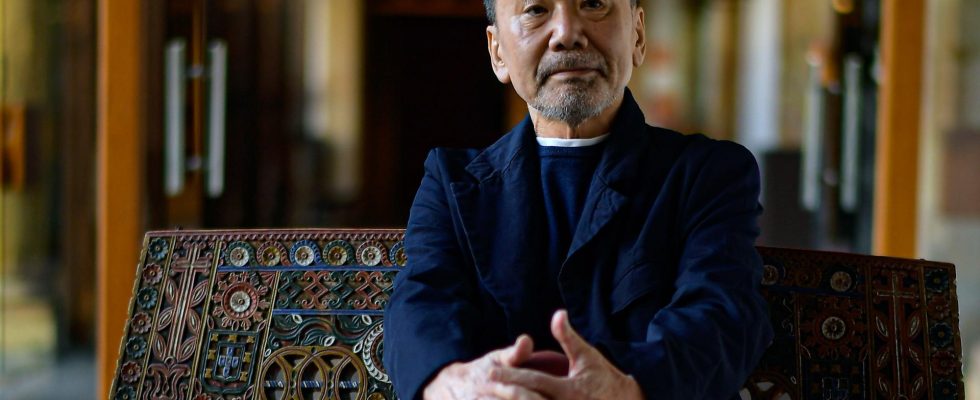Perhaps it was the confining experience of lockdown that brought Haruki Murakami back in The City and Its Uncertain Wall. At the beginning of the pandemic, he revisited the short story of the same name, which he had already published in a literary magazine in 1980 and which he had taken up again in his 1985 novel “Hardboiled Wonderland”. Because it still seemed unfinished to him. He revised this story of a youthful love that was abruptly interrupted and lived on in a dream world and expanded it to a massive, if, as always, streaming 640 pages.
Joy for beginners
It all begins when the 17-year-old narrator loves a girl who suddenly disappears after long conversations and promising kisses. Only in a half-real city with an uncertain wall that constantly moves itself does he find it again. The boy finds access to this seemingly deeper place – as is often the case with Murakami – through a hole in the ground. He is let in by a dangerous gatekeeper. Freud for beginners, right at the beginning of the novel.
But then new, strangely enchanting spaces open up again and again, into which you follow not only willingly but also excitedly. The boy becomes a dream reader in the local library, which keeps old dreams in egg form. His missing girlfriend is the librarian and gives him the dreams, even if she doesn’t recognize her loved one. On this side, this extremely tender episode could be read as an attempt to be close to a girl who is in the throes of severe depression.
Extremely productive and with a wide horizon: Haruki Murakami is probably the best-known contemporary Japanese author abroad. His novels and stories such as “Wild Sheep Hunt” and “Mister Wind-up Bird” have been translated into around 50 languages. You immerse yourself in Japan of the past four decades. Loss and death, loneliness and emotional insecurity play an important role in the everyday life of Murakami’s heroes. A mixture of mystical and realistic elements creates the appeal of many of his stories. The writer, who is often considered a Nobel Prize candidate, will be 75 years old on January 12th.
The narrator almost remained in this on the one hand meaningful, on the other hand uneventful afterlife, because his shadow was taken away from him, quartered separately and becoming increasingly weaker. But then that very shadow pulls him out again. At least that’s what it seems at first.
The young man listlessly resumes his normal life, studying in Tokyo and working in the bookstore for many years. At some point he moves to a decidedly computer-free library in Fukushima province.
There he befriends an older man who turns out to be a ghost, and a boy who would generally be described as autistic. The provincial library has many parallels to the library in the walled city. The autistic boy also knows them, can draw a map of the afterlife and wants to live there himself.
Solitude, good conversations, cake and jazz
“The City and its Uncertain Wall” is a novel full of well-known Murakami elements: many lonely characters, but for whom good conversations, cake and jazz always come at the right moment. This makes escapism bearable. Here too, Murakami is more of a set builder than a narrative condenser. With a generous gesture he invites you into his dreamy spaces full of flashing reflections, mutual dreams and twisted causalities.
After the rather dull double novel “The Assassination of the Commendatore,” the now 75-year-old has now succeeded in creating a network of puzzle rooms that open up as a matter of course and mutually embrace each other. So even Murakami’s scandalous redundancies finally make sense, because they act like a meditative mantra and create a text space that frees up time in which we can relax by reading and let our own inner guardian open all the gates.
The once unfinished short story has found a home in this remarkable novel.
Haruki Murakami: “The City and its Uncertain Wall”
Translated by Ursula Gräfe
Dumont, 640 pages, 34 euros
Release date: January 12, 2024

